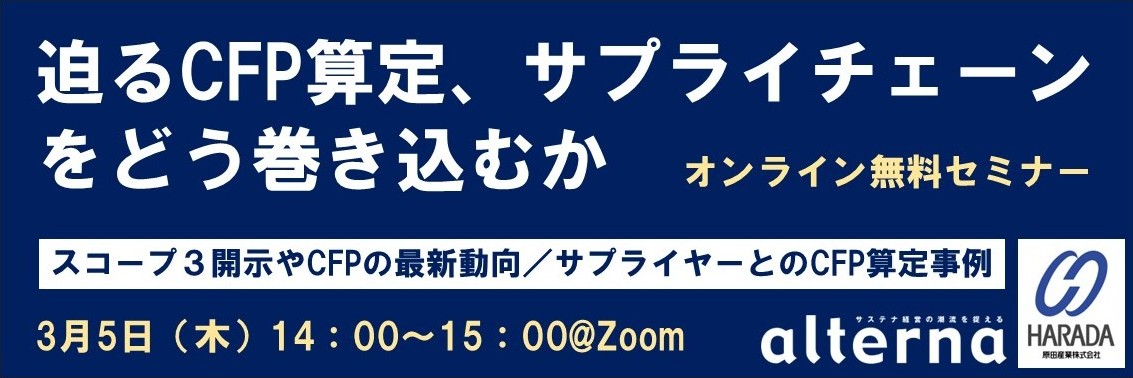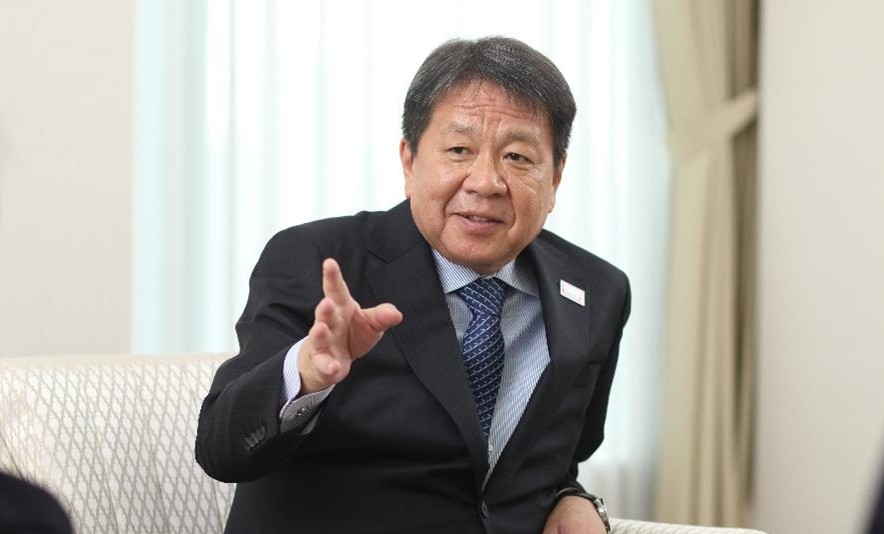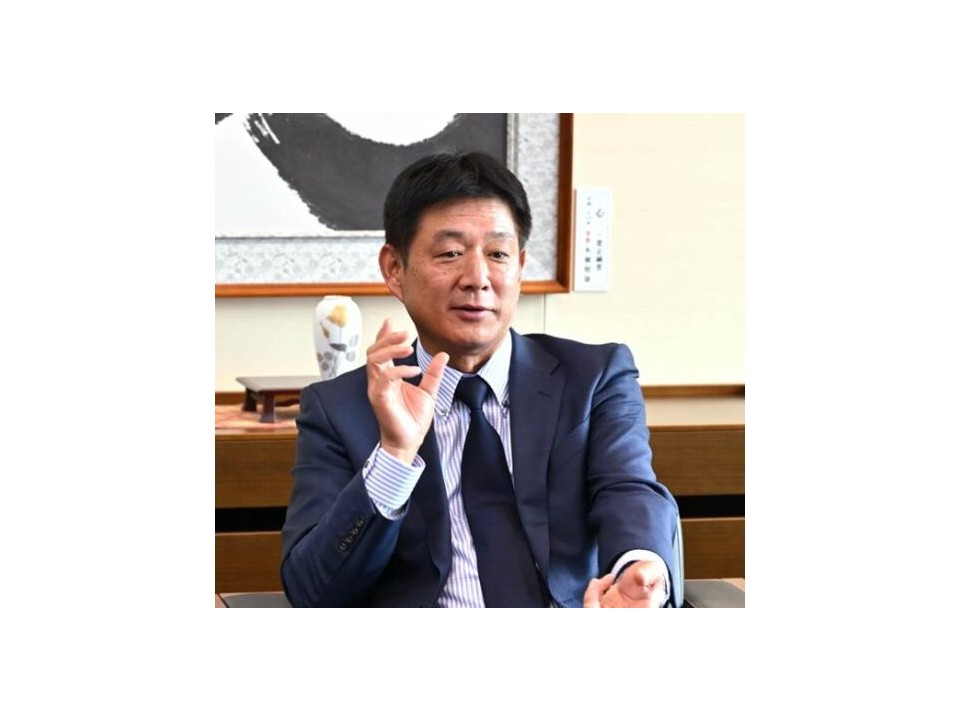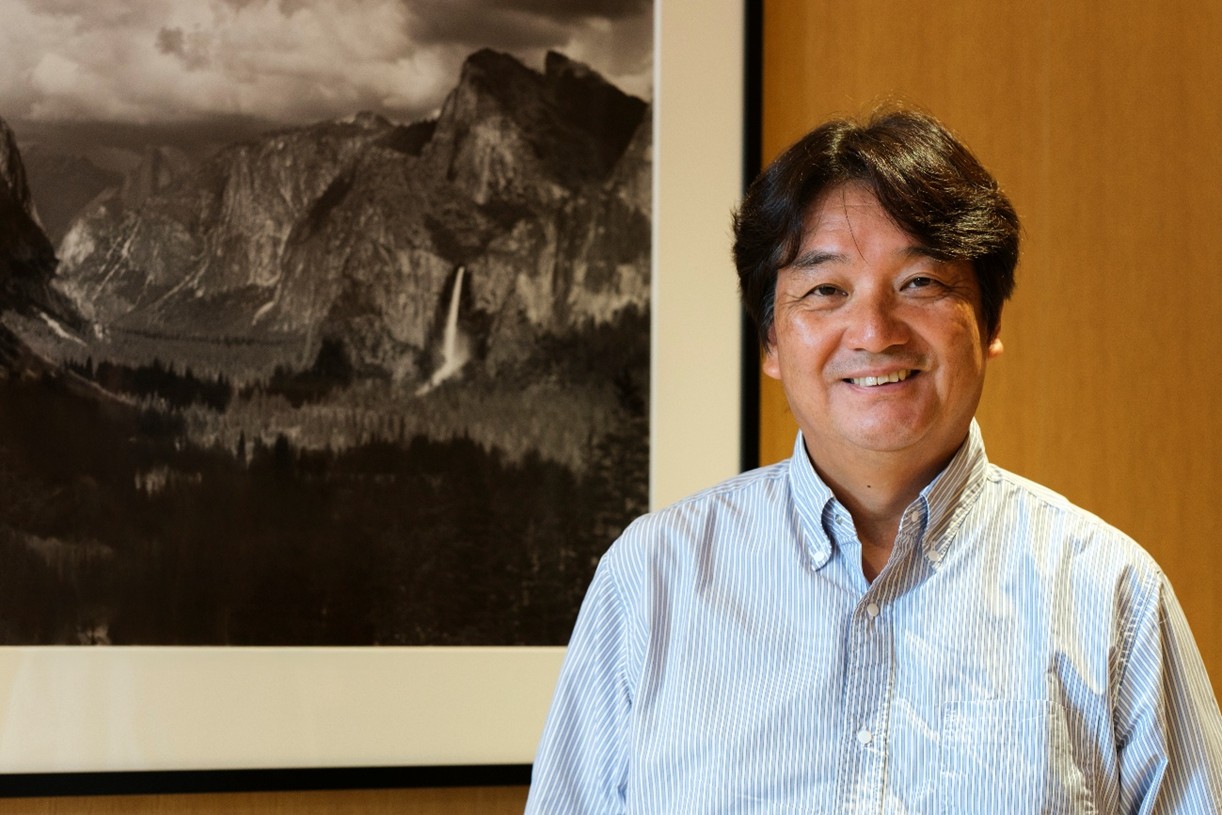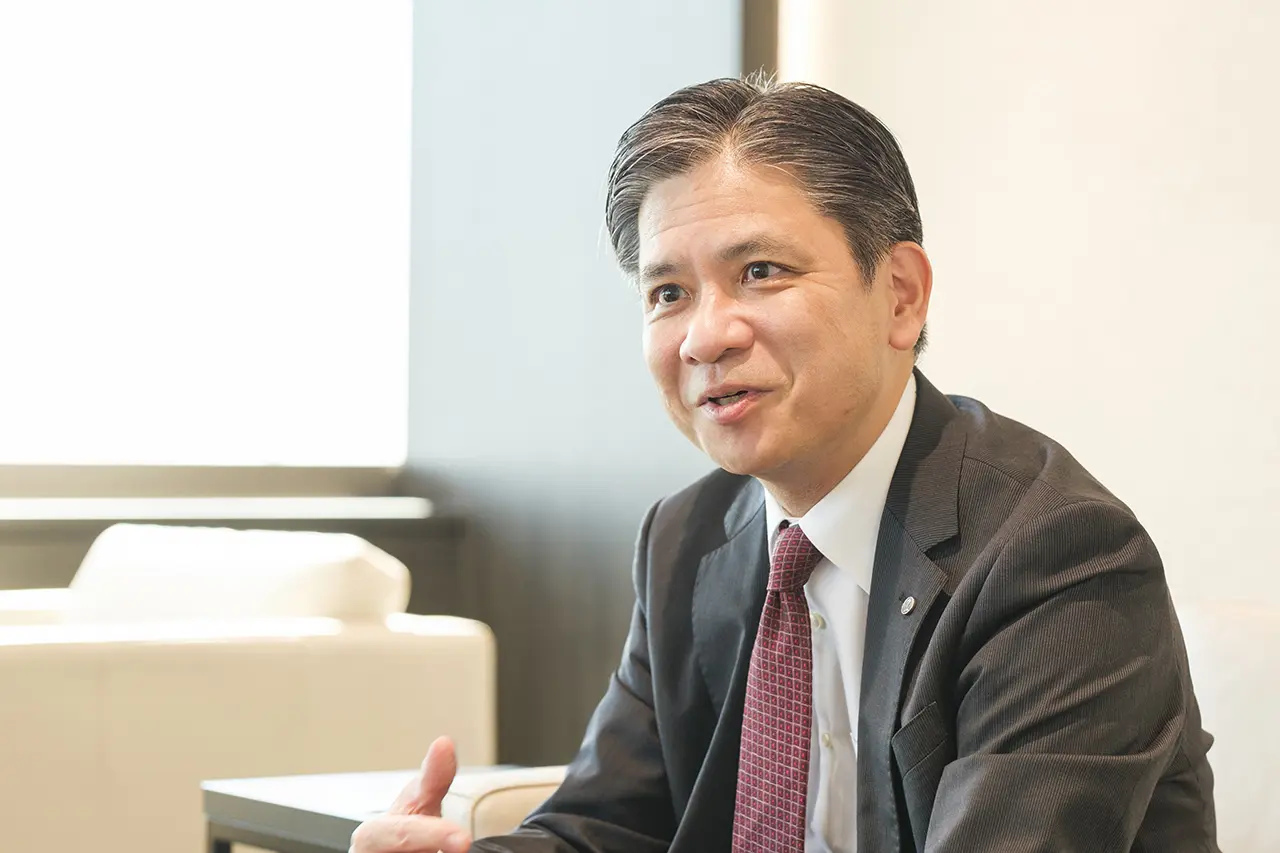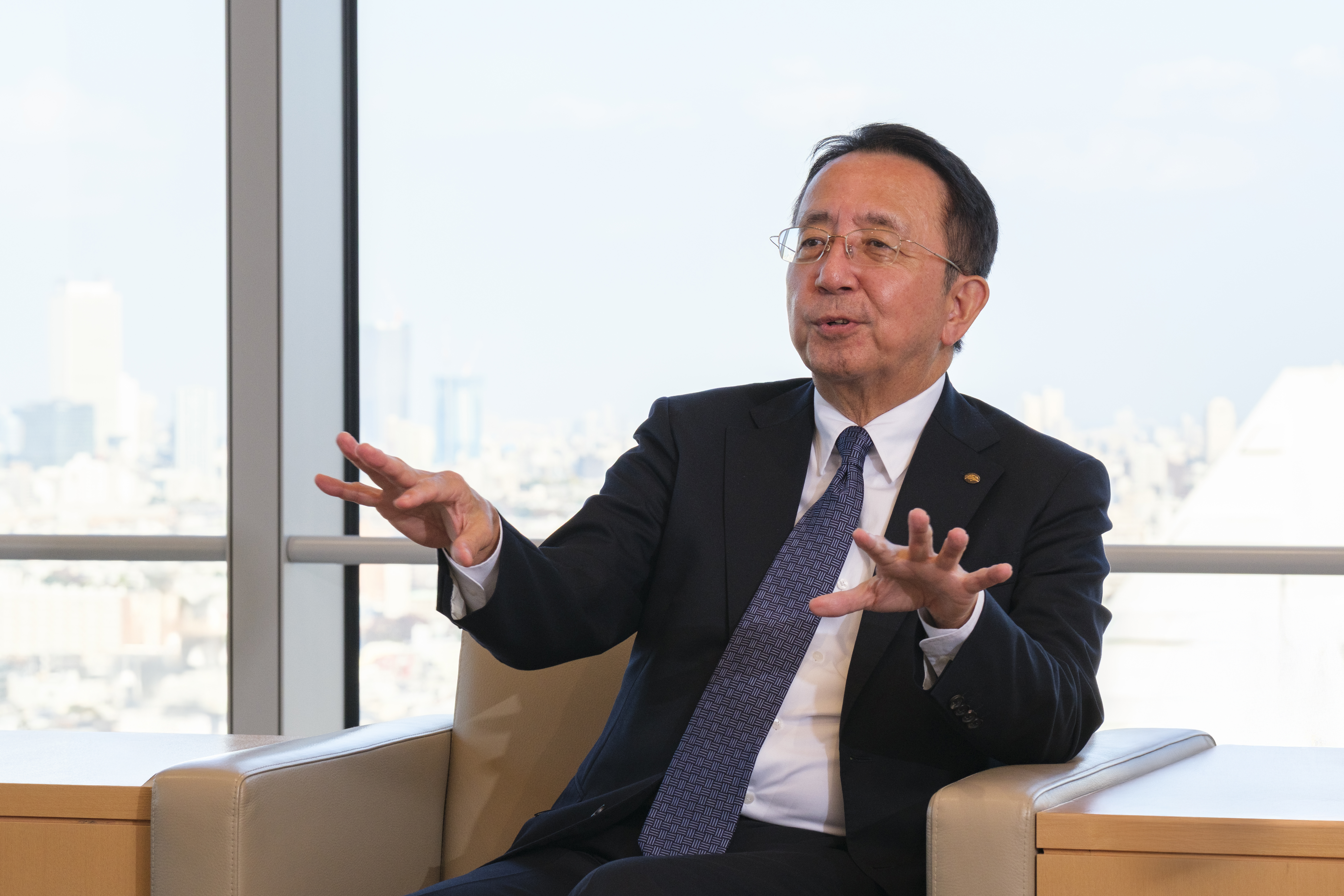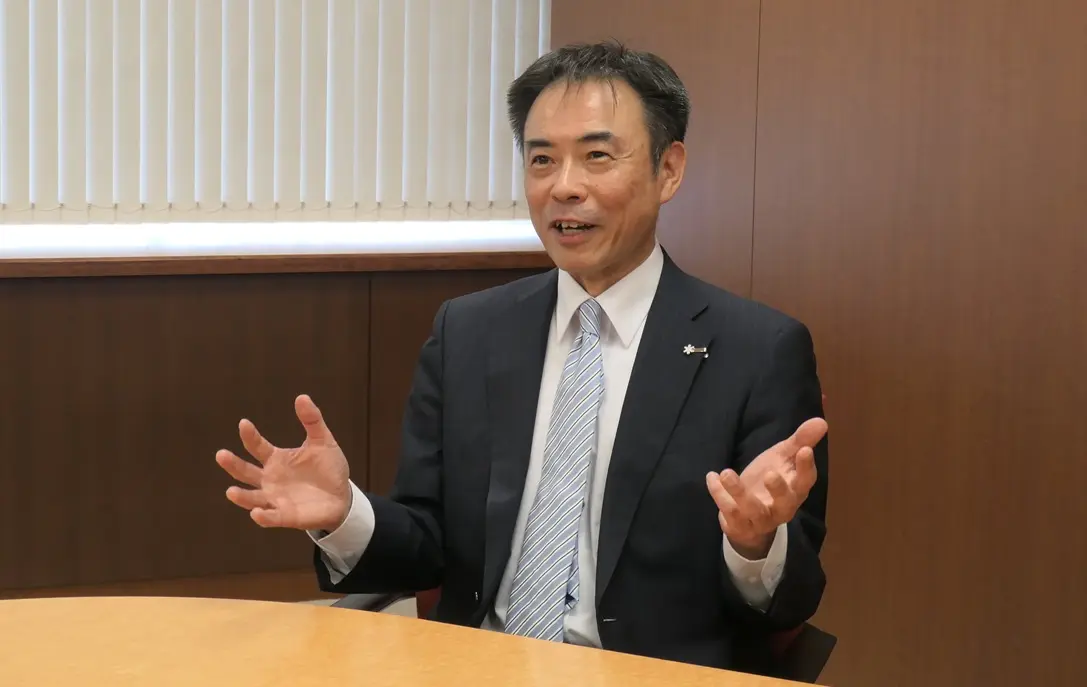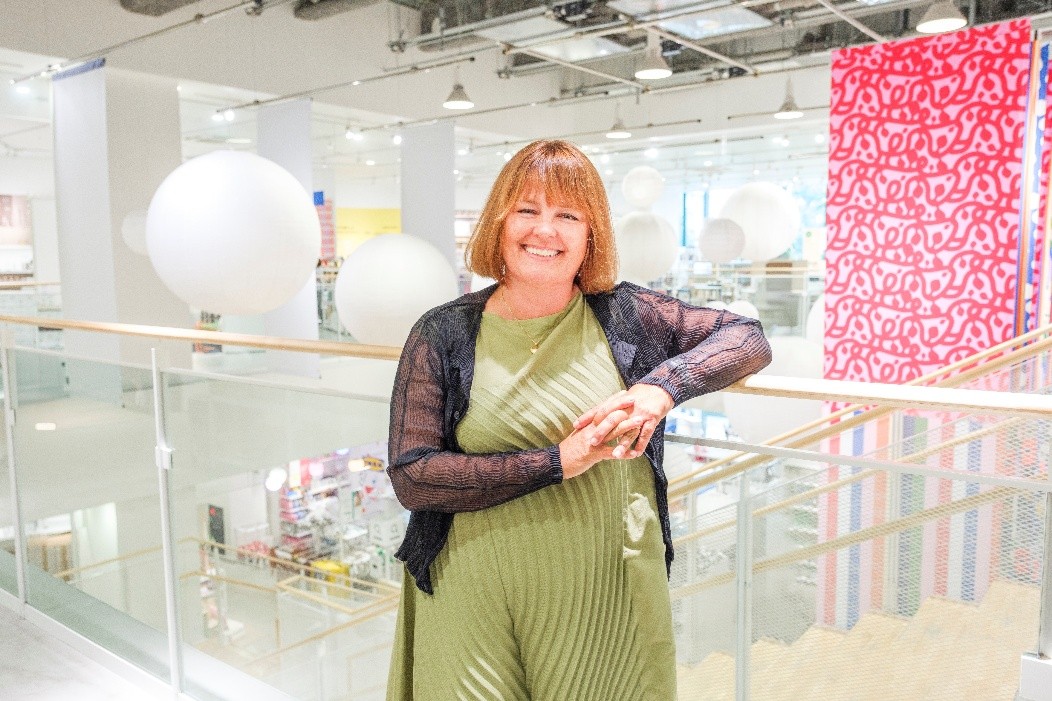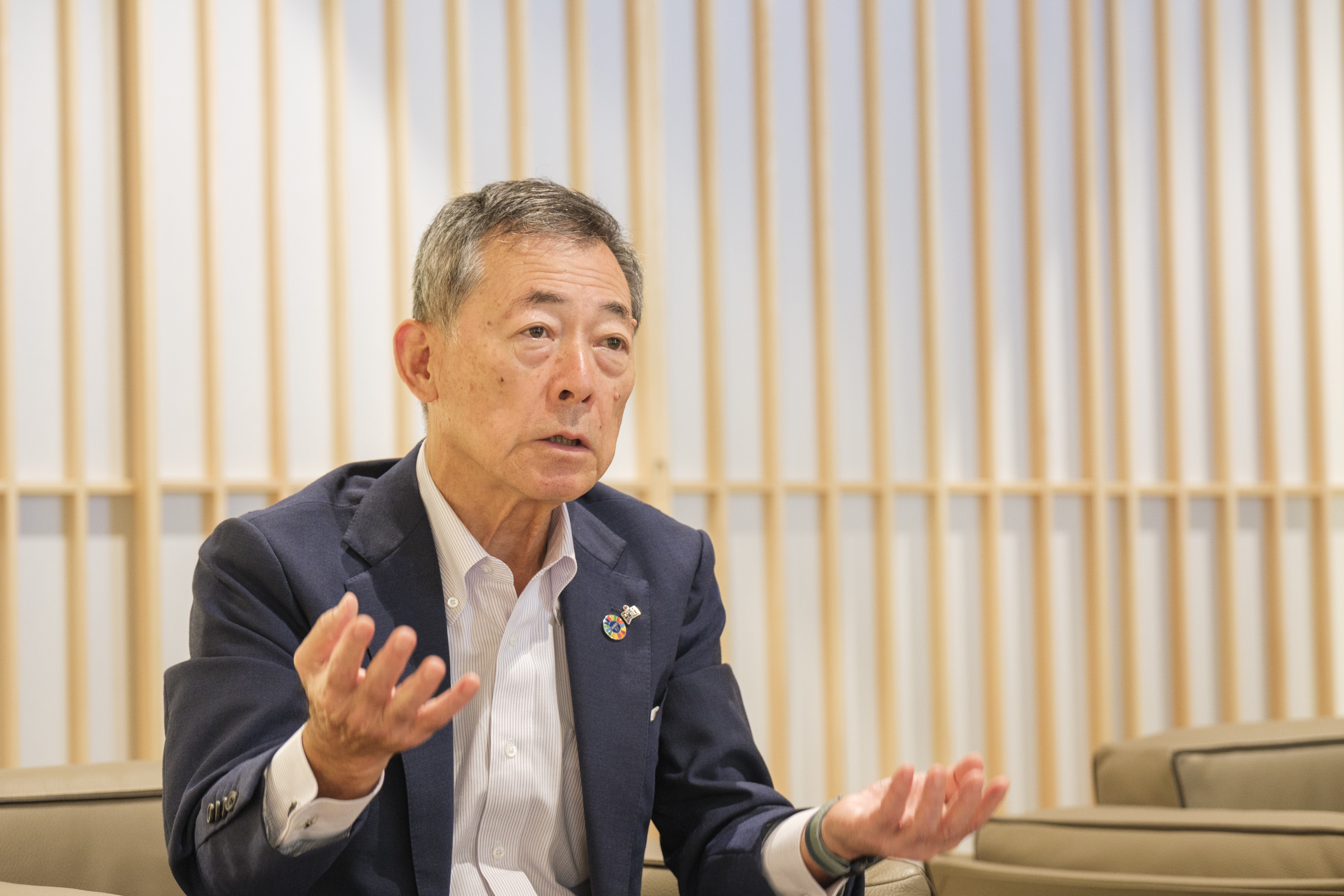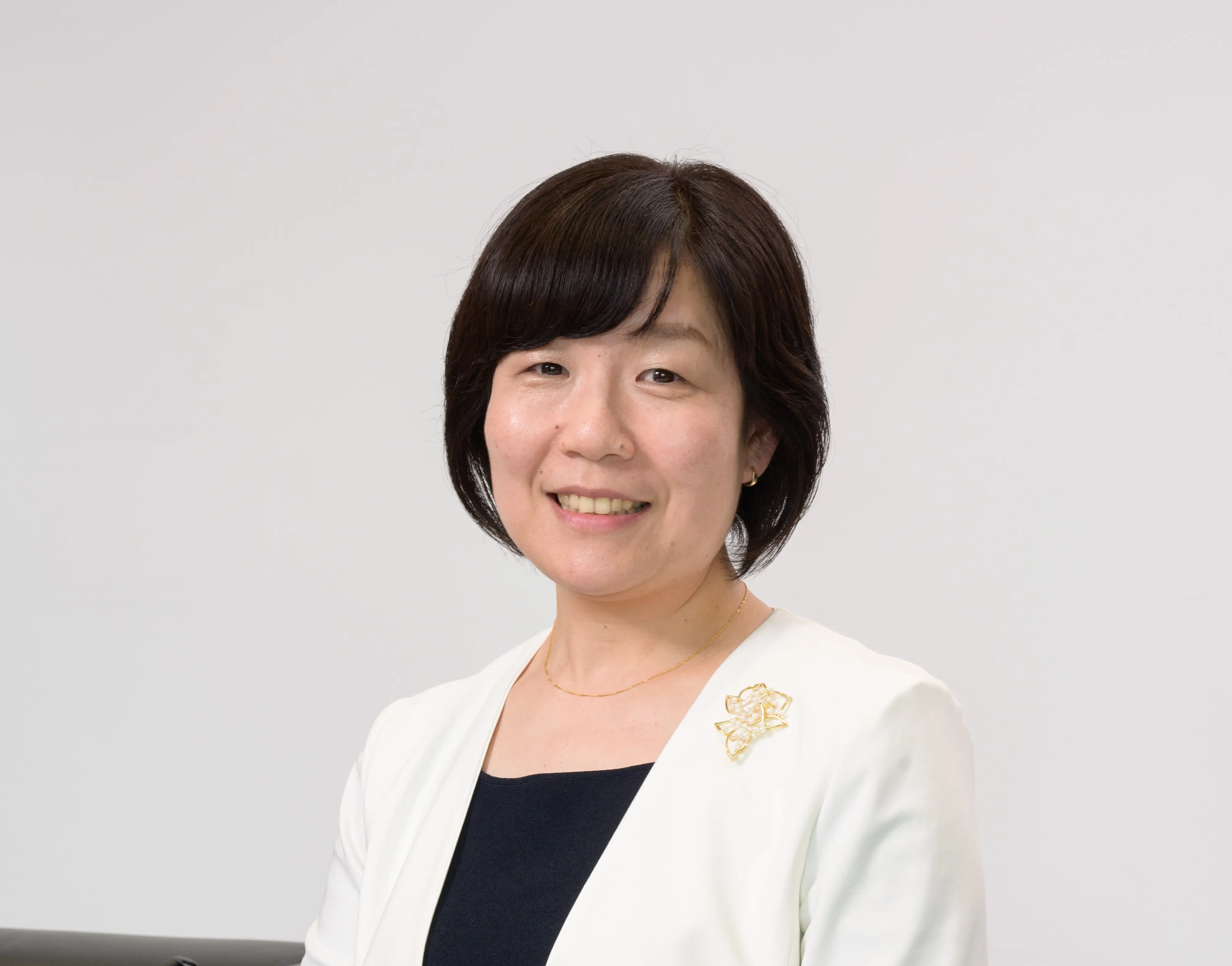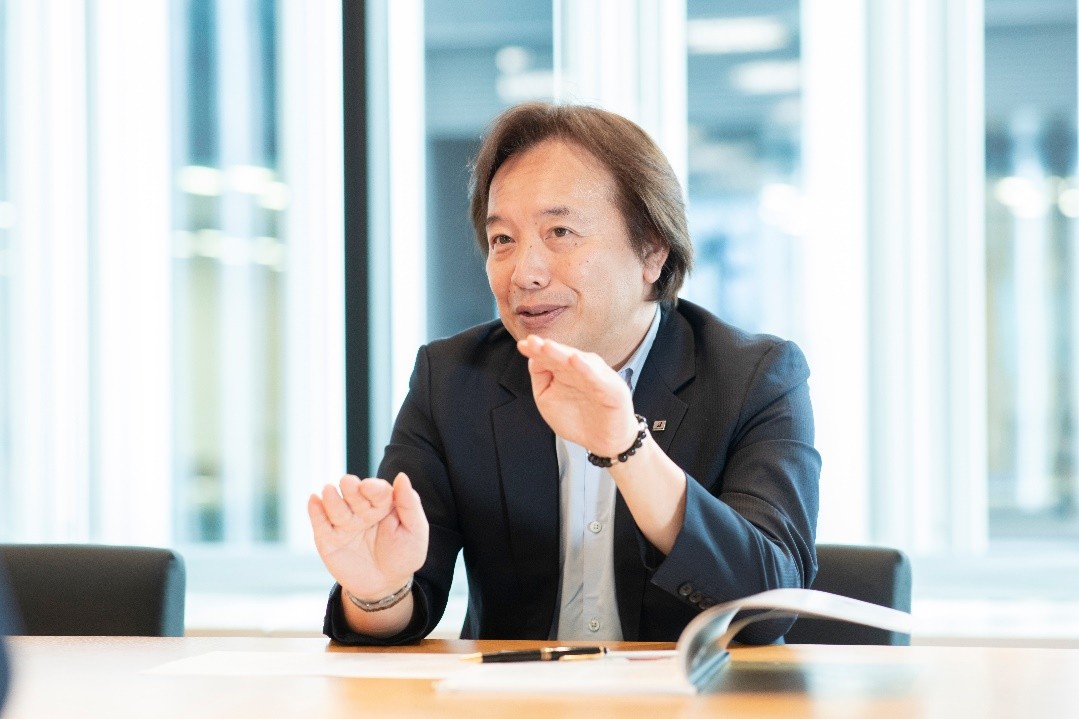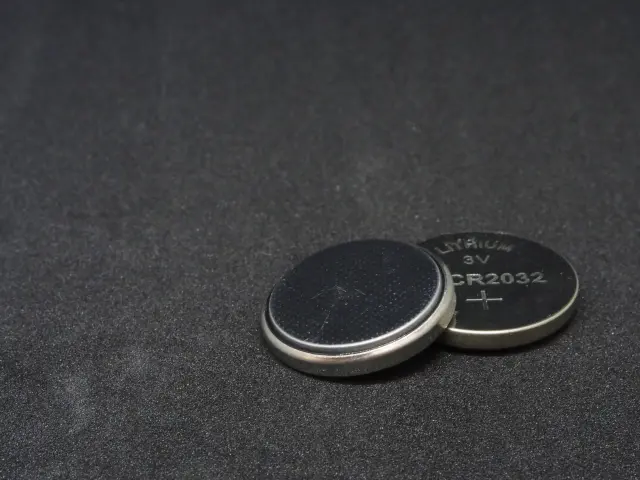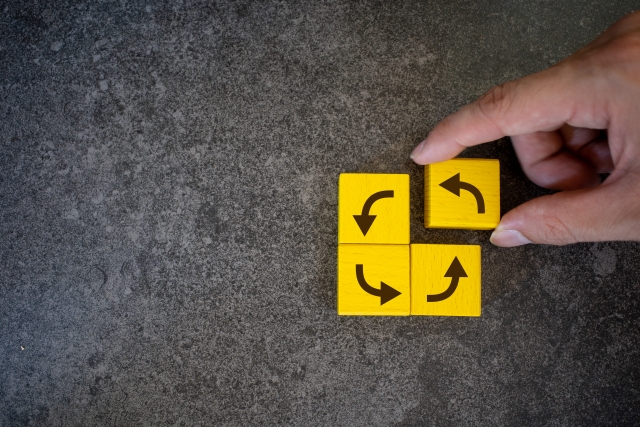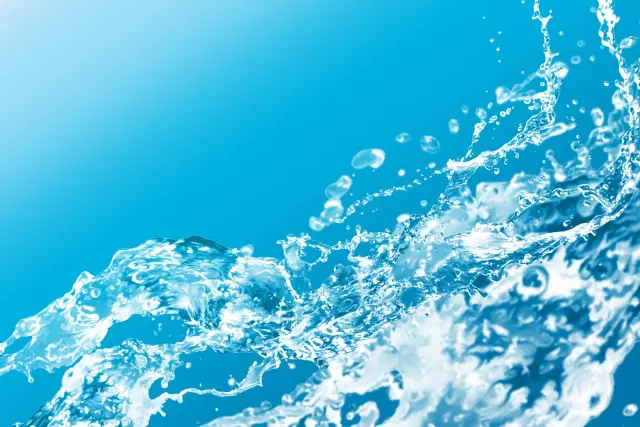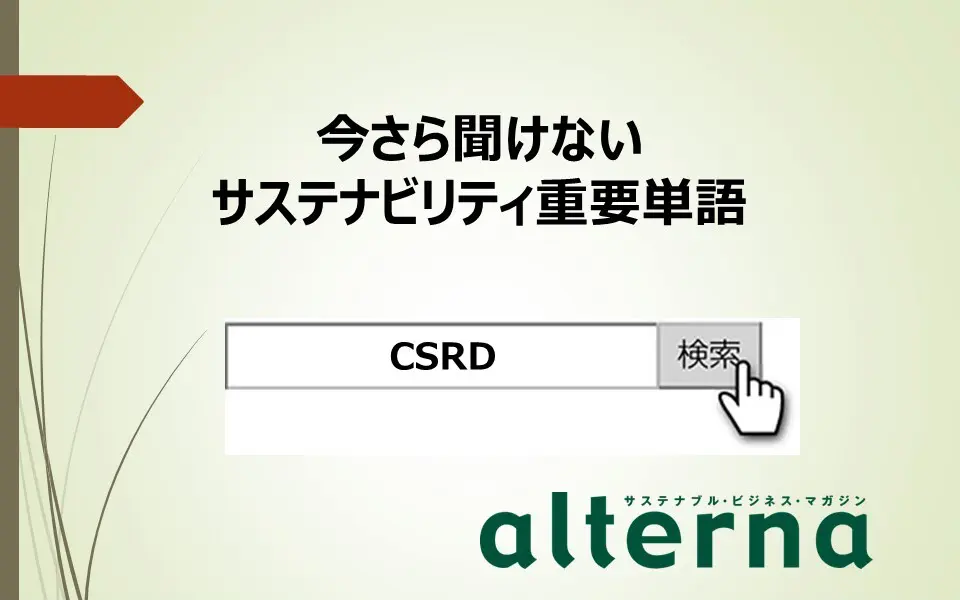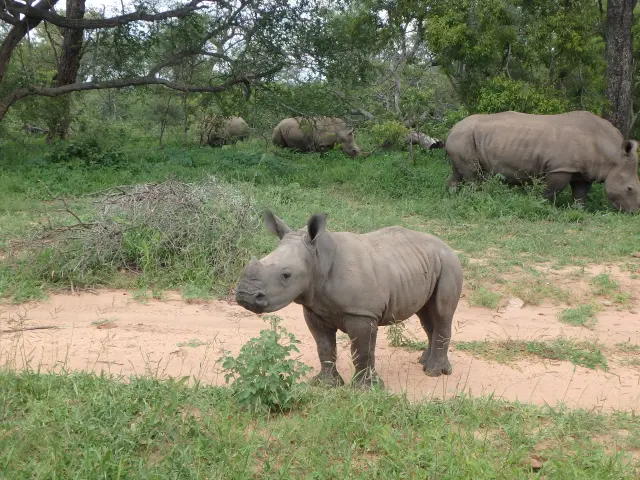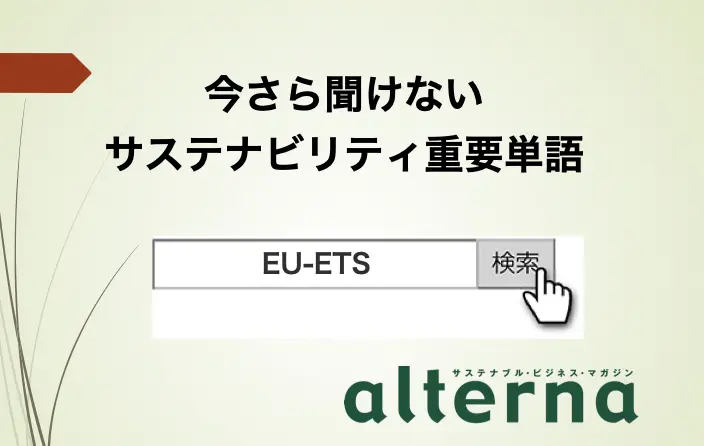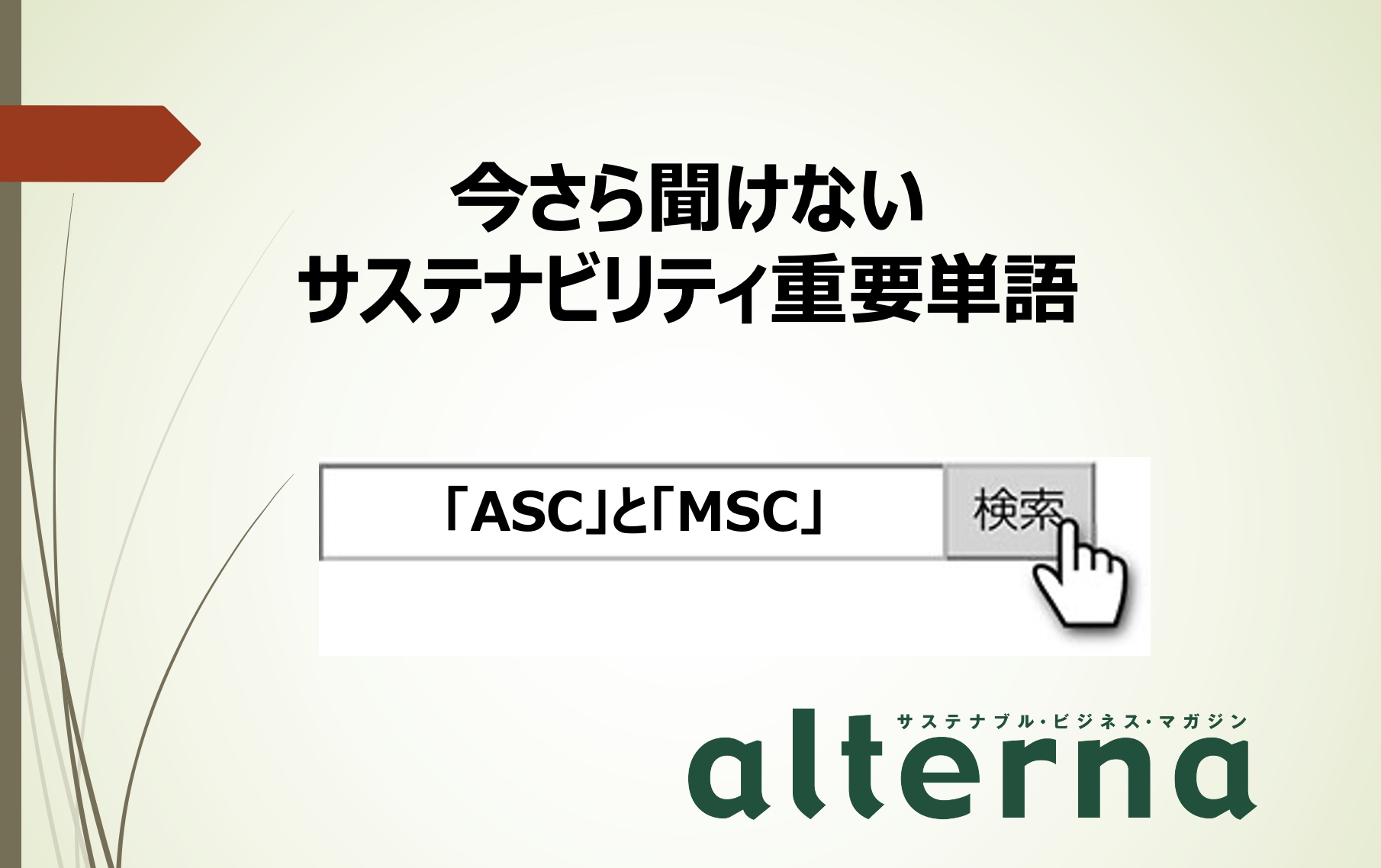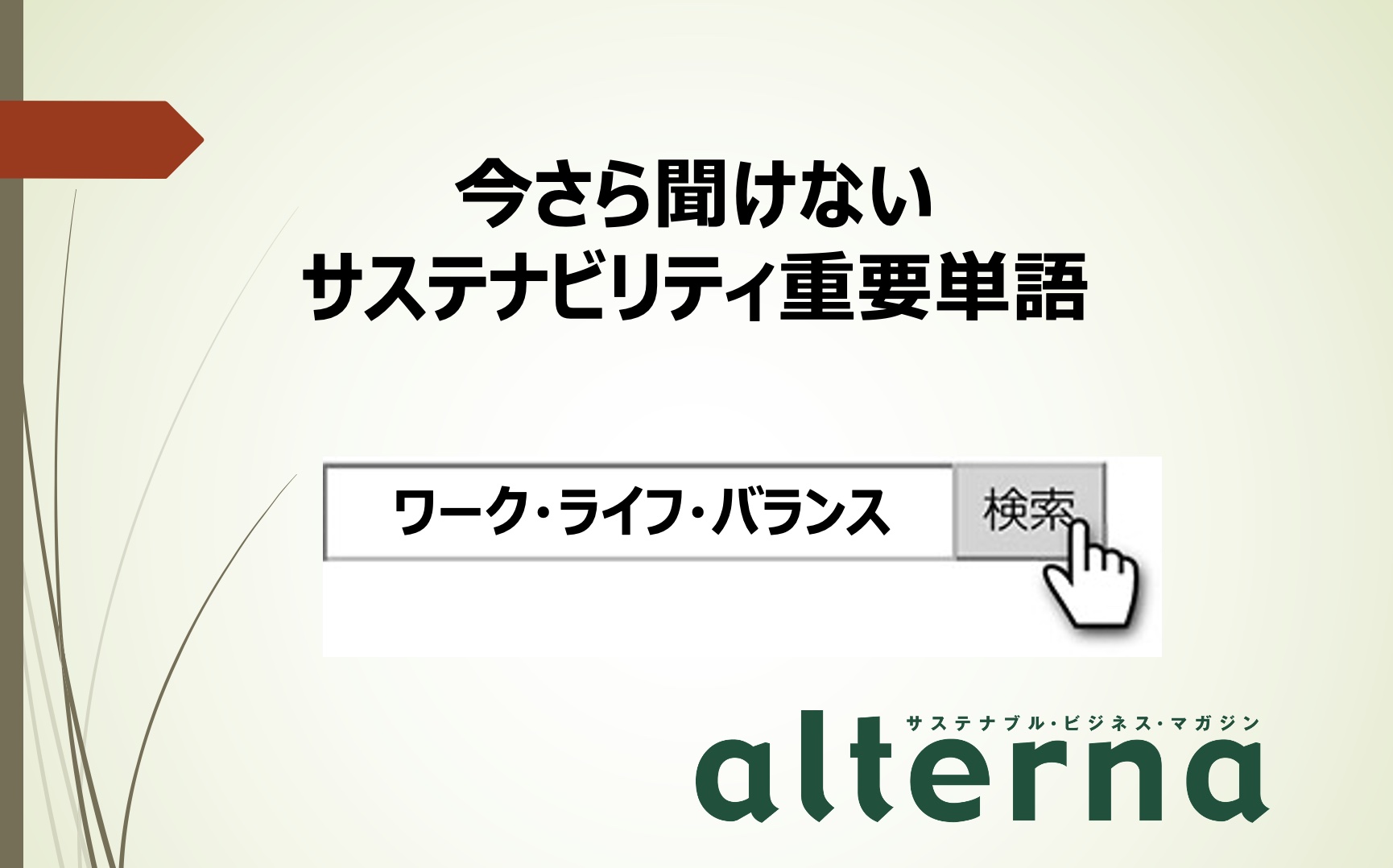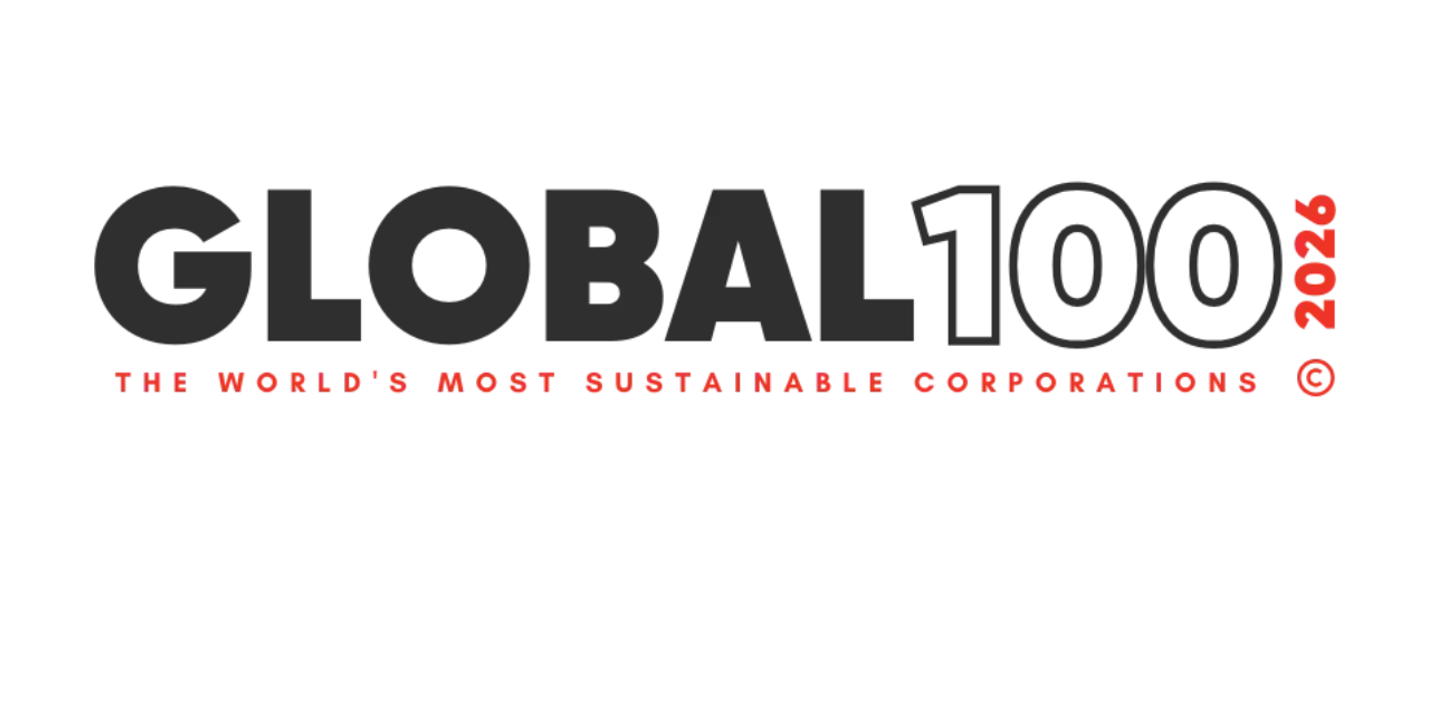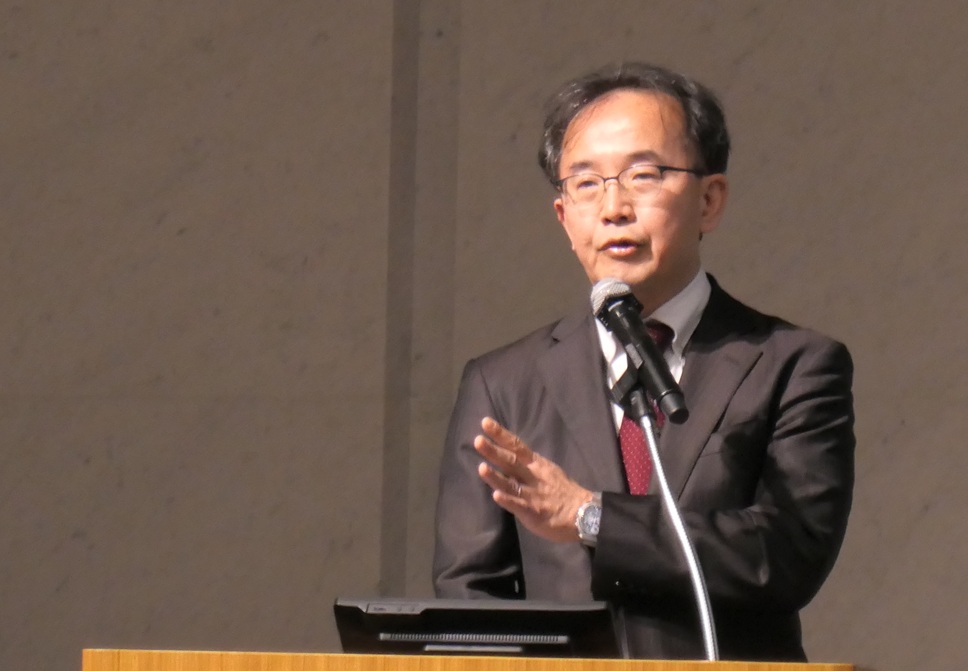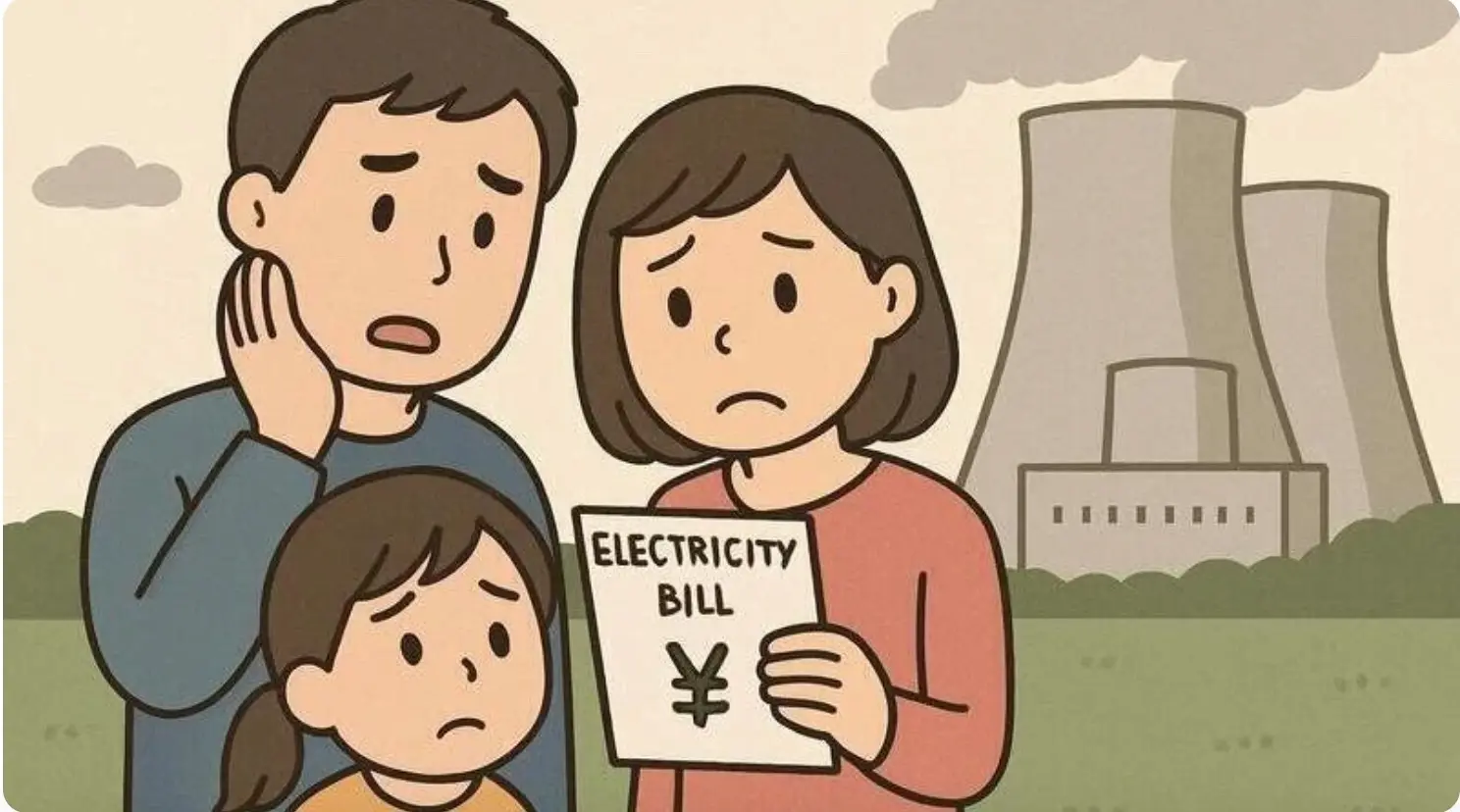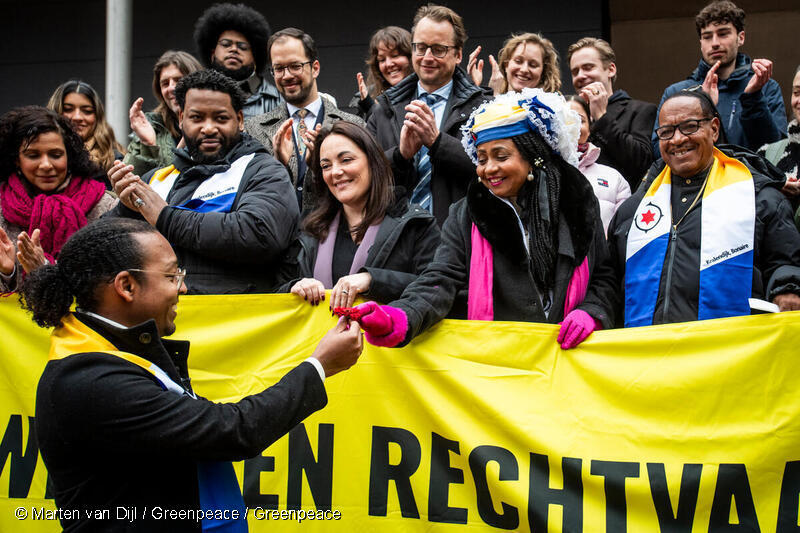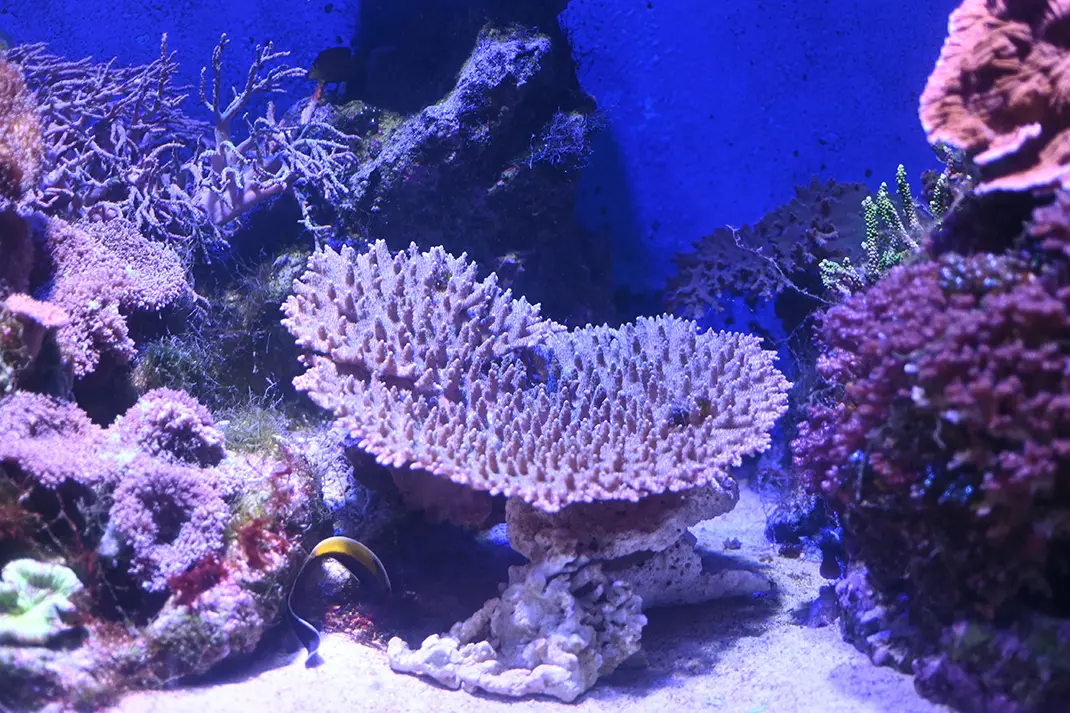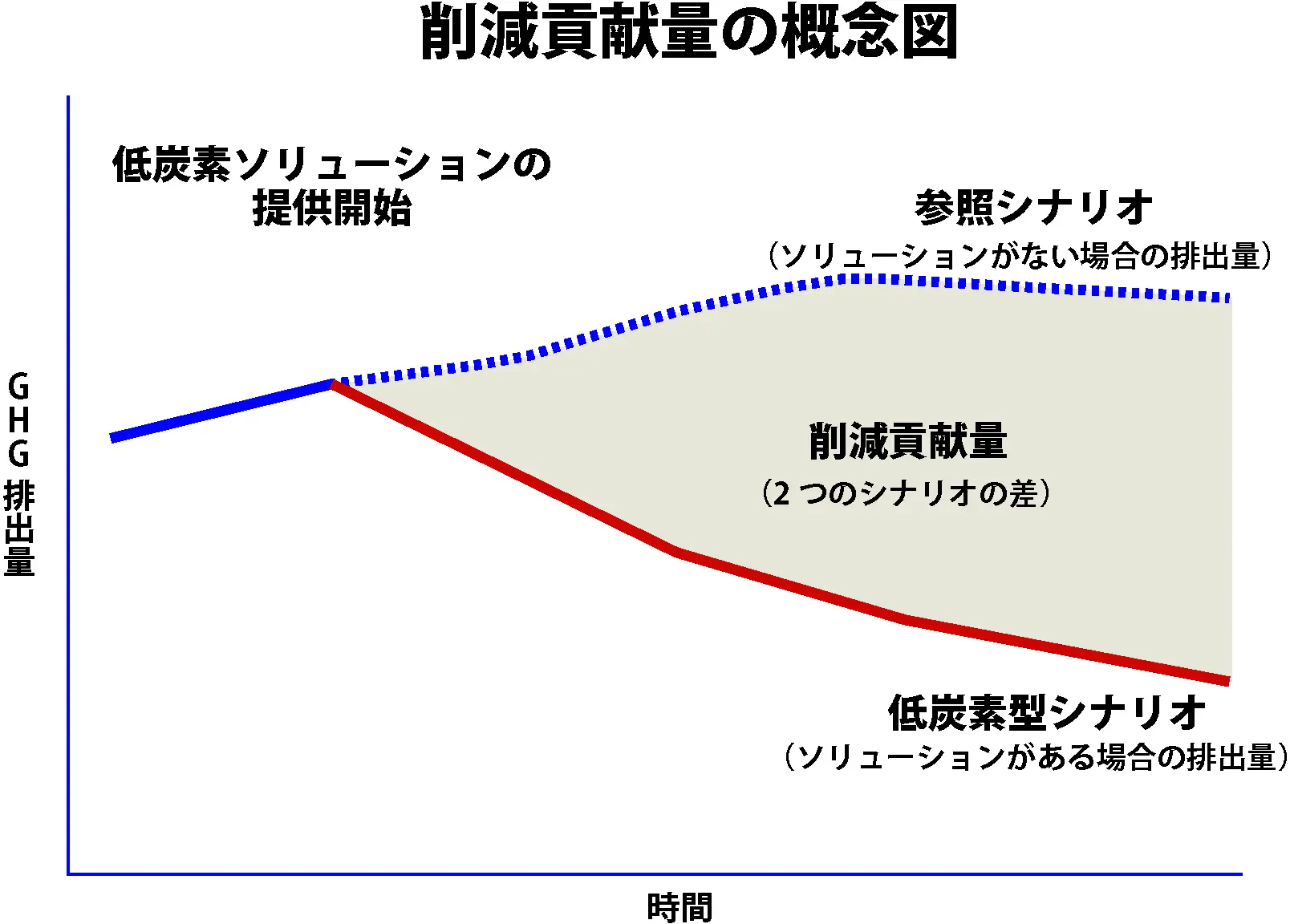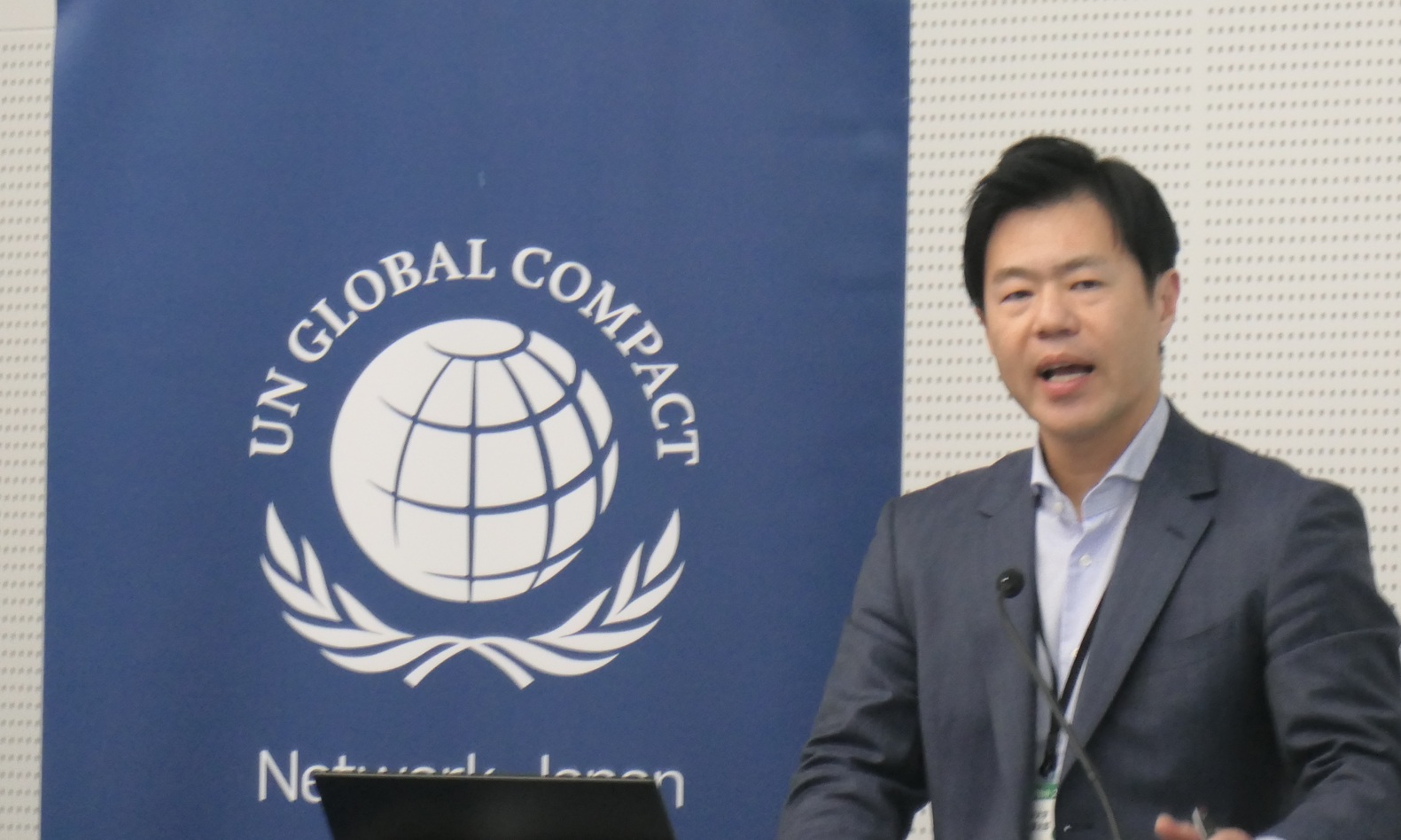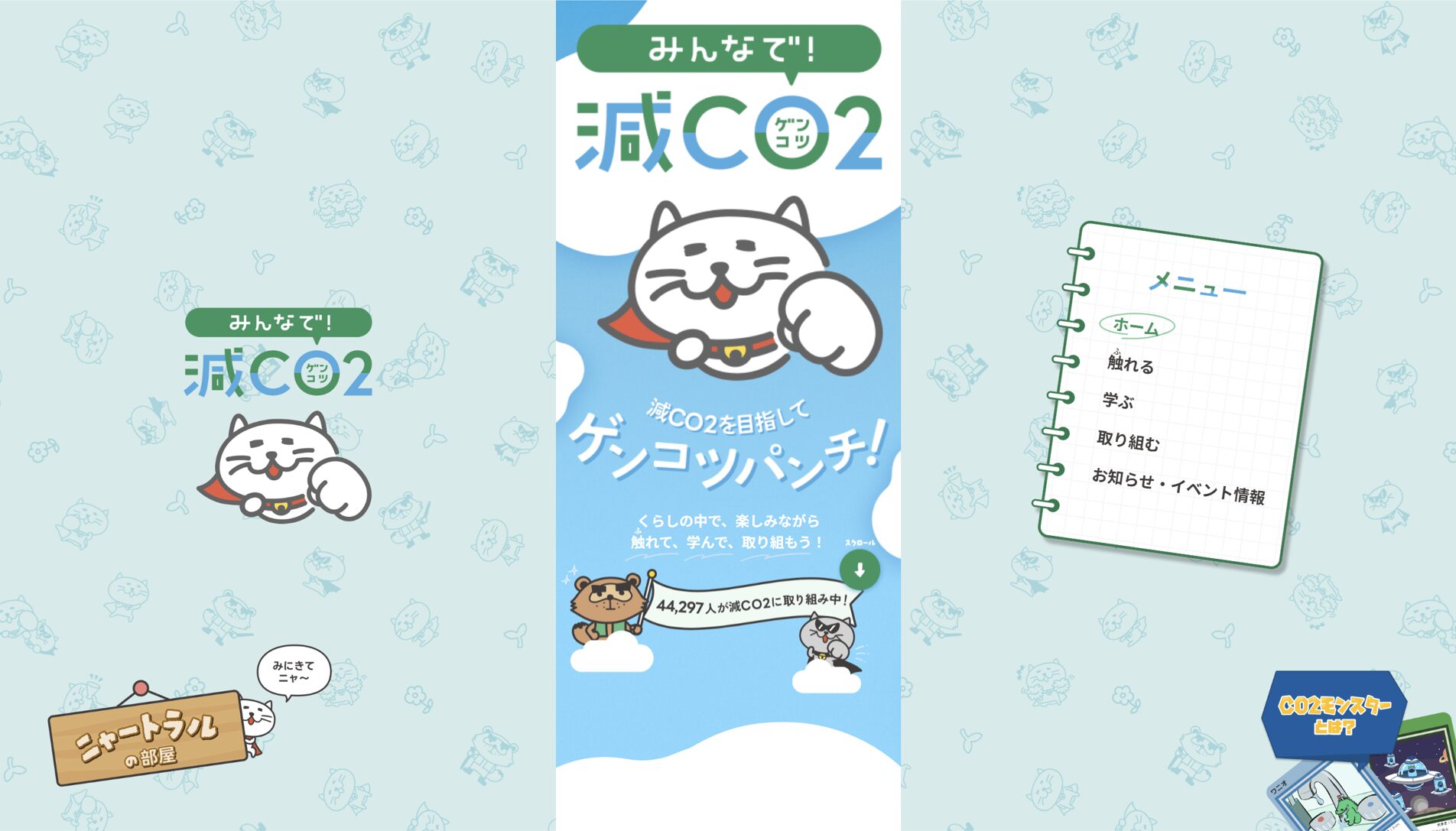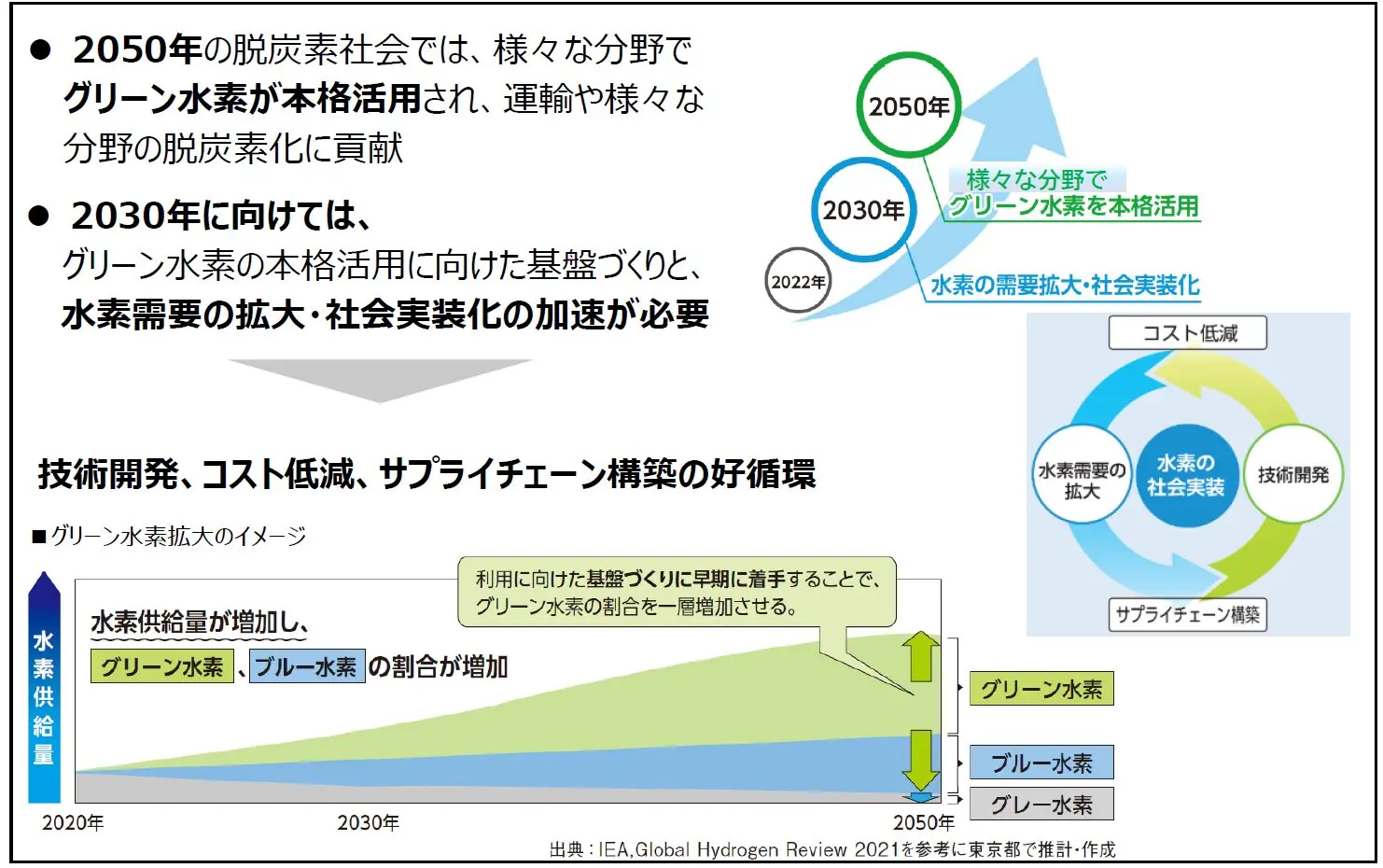―――― Your book,” Let My People Go Surfing”, has been translated into some languages, selling 36000 copies in Japan.
Yvon: Yes, it’s in nine languages now, you know, Korean, Chinese, even in Bulgarian. And it’s going to be published in German and Italian in September. And I’m happy to say it’s been used in many universities, in business classes, environmental classes, and ethics classes. So it has great influence on “generation Y”; young people from 18 to 26 years old. And it’s also has a big influence on another companies.
――――I heard that you have advised Wal-Mart’s green strategy. What was the advice?
Yvon: Well, since my book came out, only 4 years ago or something, it’s been many changes. No.1, I stated in my book that 1 out of 8 women will get breast cancer; already it’s 1 out of 7. That’s a bad news, but good news is the cancer society and the scientists are finally admitting that the cause of breast cancer is environmental cause.
Another thing that happens is that most of the scientist says that we have provably reached peak oil in 2008, which means now the oil production is going to be like this. The other things that happen is the crush of the economy, which, in my book I talked about how corporation almost cannot be responsible; All the corporations. So we’ve seen the results of the greedy companies, greedy financial people, very tricky financial instruments, and crazy ways to try to make money, you seen the results of these.
The good news is, there is a revolution in business right now, especially, in the United States, the new president, who is very smart and understands what we need to do in the future.
I hope to understand Wal-Mart, you have to realize, that there are only 10 countries who have larger economy than the corporation of WAL-Mart. So about 3 years ago, I was visited by 15 WAL-MART executives, who came and visited my little company, to understand what green business is. Because the family that owns 40% of the stock, the Walton family, has became very concerned about the environment and they want WAL-Mart to become the green company.
So last October, they ask me and some Patagonia people to give the keynote address at the conference of 1200 of their buyers in Arkansas. So the purpose of the conference is to announce to all their buyers that they have a new responsibility.
So the new responsibility, they will have to make a social and environmental audit of every company they do business with; this is stage No.1. Stage No.2, is to look at every single product that WAL-Mart sells, and look at all the ingredients, look at the labor practices, and gives the grading of the carbon foot prints of every products sold in the WAL-Mart stores. So they understand in the future, consumer is going to want to know who they are buying from, and what goes into the products. How the products made, is there toxic chemicals in their products.
So right now, there is a lot of green washing, green marketing going on, confusing consumers. And in the future, when you go buy a box of salt, in order to not confuse customers Wal-Mart will make new labeling systems, which will show a grade, maybe 10, or 6 or… it’ll tell the consumers which is the greener products.
So they are doing this because they know the government is too slow to force companies to do this; like, for instance is, we have organic label of vegetables, but, you know, traditional agricultures interests are always try to downturn what the organic means.
So also they are doing this because Wal-Mart is larger than only 10 other countries in the world. So they are the most powerful force in the world, provably.
So the reason I was there, is to reassure the Wal-Mart employees that changing to green business is going to be not only good business, but if they don’t, they will go the way of General Mortars, Ford and all the other companies who have resisted a change.
So in the future, if you go to W store, there’ll be Sony television, Panasonic television, and one has a grade of 7, and the other has a grade of 2, which is very easy for consumer to know which is more responsible company, and which one is the most responsible in creating that television.
So I told to finish my speech, that I used to think the designers has the most power in the world, because they decide what kind of house you’re gonna living, what kind of car you’re gonna drive, what kind of clothing you’re gonna wear. But I told them the buyer has the most of the power, because you don’t have to buy what you don’t want. You have all the power.
And the CEO of Wal-Mart said, I know you buyers, some of you are going to think this is too much extra work, too much responsibility, and I am sure you will find another job somewhere else. And those of you who think this is the great opportunity to green the world, you’ll be adequately rewarded. So that day was the most exciting day of my life, I could see the revolution has began.
――I have additional questions. How long have you advised Wal-Mart’s green strategy? And how long does it take to go green completely?
Yvon: well, I ‘d been asked to give another talk at Wal-Mart along with the Wal-Mart CEO in September. Because we have been working with Wal-Mart to establish the criteria of the quality; is the bamboo fiber is good for making clothes? Is better to use recycle polyester? Is better to use organic cotton? All these questions, we’re answering, putting into a book that would be co authored by Wal-Mart and Patagonia.
So conference will be made up of CEOs of the top clothing companies in America, who will be asked go buy this index that we are creating, and if they don’t, they can’t sell to the Wal-Mart.
So they will still carry the products that are not green, but the customers will know, so, again, the people who have the most power is the consumers, that’s us, we have the power.
So I think they are planning in 3 years for this to happen, very quickly. We’ve been working with Wal-Mart not for about 4 years.
They’re very serious, because they have spent last years educating them about what’s going on, what’s global warming, and everything. And they realized that we’re already too late to stop global warming. The scientist has warning us for years, and the government doing nothing. And they know this, so Wal-Mart is in hurry.
So the corporations who don’t change to become green businesses will be left behind. Governments that are conservative like our last George Bush and the republican government will be they have no hope, because “generation Y” is 80% democrats.
――So Japan might be pretty soon getting like a Democrats.。
Yvon: Yeah. Japan needs a Green Party.
――In the past, we used to have a Green Party. So like Wal-Mart, GM going bankrupt, seeing those changes, the economic crash that occurred last year perhaps that was good so it seemed to prioritize, gave an opportunity for everyone to reevaluate the crazy ways of the financial and the conglomerate ways of doing business.
Yvon: Yeah, the economic crash is great opportunity. In fact, for my own business, I love recessions. My business has survived many crisis and recessions. And not just survive every recession we survived and this year we are having our best year in our history. The bad economy kills the competitions and they fall. And the consumer became very conservative.
He stops being silly, he stops buying fashion things. He doesn’t mind paying more for a product that will go out fashion and last for long long time and that’s what we make our Patagonia. I think Obama also loves this recession because he could never do what he is trying to do if we didn’t have economic crisis.
――Last question from me. That’s said, there are still many Japanese company top people, executives, thinking that it’s not possible for business profit and the environment to co-exists. But if you could provide some words of wisdom from your experience and knowledge on these are the things that would make it possible for business and the environment co-exists, it will be appreciated.
Yvon: Well, you know I, Patagonia, consider the stockholder is the planet. So we make every decision asking “Is this the right thing to do for the planet”. And we see everyday the companies that are refusing to change.
I mean even, I thought that may be with this recession, Toyota will be laughing all the way to the bank. But Toyota also made the mistakes by making too many trucks, SUVs and cars peoples don’t need. So, many many corporations and businessmen come to us for advice but most of them come to see if Patagonia is real or is it just green marketing because they want to change their company but they are very afraid to do so.
So, I tell them that the Generations Y, the young people, don’t believe in advertising. They want authentic product, they don’t want to listen, they don’t want to watch television, they don’t want to bombard with all this advertising. So these young people are going to vote with their wallet and the credit card. And if you don’t change, you won’t be in business.
――Thank you very much. That’s it from me. So we will get question from the audience.
Audience: Thank you. I came from Niigata prefecture, 300km from Tokyo. I am old customer of Patagonia. I got “Synchilla Snap-T” about 25 years ago. You wrote this book, “The first goal of the Patagonia to ensure and encourage the particular philosophy of life”. In this book, one of the belief is “Less is More”, in design and consumption. In Japan, everyday many many new design and new materials come up. So, tell me more about “Less is More”. I have three favorite Patagonia shirts. I am afraid that I should better new designs Aloha-shirts or not. Give me nice answer, please.
Yvon: So, about “Less is More”, one more quote. “More you know, less you need.” So, this last year, I’ve been fly fishing with the “Tenkara”. No reel, very simple old methods, maybe 500 years old. One of our surfing ambassadors, Dan Malloy, is one of the young guys surfing with Alaia boards which are copy of fold Hawaiian boards from around 16th-17th century. That is just a flat piece of wood. And he is able to surf better than 99% of the surfers. So, when I was a young climber, climbing in Yosemite, doing climbing that took 10 days and all this equipment, now there are really great climbers climb it in 3 hours. So, in my life, I try to go more and more simple. It’s like “Do you need a rice cooker?” “No, I can cook rice in a pot”. So that’s the philosophy of changing yourself not buying all the thing that allow you to do these things but to get… we used to say in the 70s that he who dies with the most toys wins. But now, he who dies with the least toys wins. My role model is the father of a Japanese friend of mine he lives in the Northern part of this island. His wife has died and he is 80 years old. He goes fishing everyday of the rocks, catches more fishes than he can eat, he trade them to other people for vegetables and other things, he has a garden. He lives in $200 a month. So he has no drain to society, he is a consumer…which consumer means one who uses up who destroys. That’s who we are. We are consumers. So, that’s my role model. It will take a long time before I can do this. It’s so easy to make your life complex, but it’s difficult to make it simple.
――Yes, definition of consumer is the destroyer… I agree. And you said that the idea of stakeholder is the planet. Those two are the things I want to take to my heart.
Audience: Hello Yvon. You mentioned Generation Y. Do you have any projects you, yourself or perhaps Patagonia is involving in trying to teach the even younger generations about how they should in order to benefit the economic and environment co-exists.
Yvon: No, we don’t have anything like that but we should. Because when I wrote this book, I went around on the book tour, and I didn’t go to the book store but I only went to the universities. I was amazed that how many young people understand the problems and they want to change the world. You know, this generation, all of us, generation X and older… nothing is going to happen. In the United States, 80% of the American people say they are very concerned about global warming.
They concerned themselves as environmentalist, but saving the planet is only number 19 on their priorities. But with young people, they understand, and it is number 1. If we have a dead planet, we have no government and we have no businesses, we have nothing.
Audience: Good afternoon. I am a president of Eco Circulate Japan, Organic Certification Company. There is one more question about the Wal-Mart section. When they switch to green products, what would be the impact on the pricing?
Yvon: Good question. Well, 25% of Wal-Mart’s customers do not own the credit card, and they do not have the checking account. They are very very poor people. So they think they are giving good value by having the lowest prices say on the hundred vegetables.
So, I told Wal-Mart what kind of value are you giving to your customer if you are selling non-organic vegetables, all grown with chemicals and pesticides and it’s been proven that the nutrition level of those vegetables is 70% less than organically grown.
More and more, especially Generation Y, are welling to pay the true cost on the product. And I should have worn now…I had some Wal-Mart organic jeans. They produced these jeans and they are selling them at Wal-Mart store for $15.
――$15 jeans is inexpensive. I think it’s pretty much impossible in Japan. How did they make that possible?
Yvon: They grew the cotton in Pakistan and were sawn in Pakistan. But they are not in a sweat shop. They are very careful to use a very reputable sawing factory.
I can tell you another story. When I was speaking to the Wal-Mart people, I knew that what was going on in their heads. They are saying “Well, Patagonia you can be a green company. You can have the highest quality clothes, you can add value to your clothes because you are selling to only rich people. So I told them that “Yes, we do sell to the rich people, but also we sell to surfers, climbers, and kayakers. If they have a car they are living in their car, and they have very little money. In fact when I was a young climber I used to eat cat food”.
Not just ordinary cat food but cans of damaged cat food. But those young climbers and kayakers, when they buy a mountain jacket, they buy the one and they buy the best because it’s very important for them. So when they go to a Wal-Mart store to buy their cat food that is made in China maybe there’s melamine and toxic chemicals and you’re poisoning my customers (that is what I said to them).
Audience: I work at a manufacturer. You mentioned your role model. I personally try not to buy a lot and try to save conserving energy. That’s how I try to live but when I go to work there are few hundred thousand people working in my company and people need to make a living as a reality. So there is me as an individual and there is me as a corporate person. It almost seems like I have a split life. Can you elaborate on how one should face that dilemma?
Yvon: I flew here in an airplane using I don’t know how many tons of carbon. When I die I am going to go to carbon hell. In the future there won’t be enough jobs for everyone if we continue making robots and high technology in our manufacturing. There will be no jobs.
David Brower the American environmentalist said that the solution to a lot of the world’s problems is to turn around and take a forward step. So I ask a lot of people in this room, would you rather as your job stare in a computer screen all day or work in a garden? Or work on a hand-made beautiful product with your hands? That’s the only way that I can answer this.
But the next economy is not going to require very many people and very many companies. Few companies will survive. Every time I am confronted with a problem in my business, the answer is always “increase the quality”. So the future successful products and successful companies will be the ones making the very very best quality.
――I just want to add on that he mentioned about Wal-Mart, the Walton family that started the business decided to make their business green. So maybe for you company, if the CEO says that is what we are going to do then there is that possibility and I think that it’s a huge theme for the CEO and owners of companies to realize that. It’s very difficult for each person and individual employee to make that change
Yvon: It only takes one person. I started an organization called 1% for the Planet and we are in 38 countries. We have 1,400 members and these companies are all taking 1% of their sales and giving it to environmental causes. We have no public companies because the old way of doing business is the sole responsibility of a CEO of a public company is to maximize profits for the shareholders.
But what I hope in the future is that these big public companies will realize that being environmentally responsible and giving money away to protect the planet is good marketing. So imagine, the next time you have to buy gasoline for your car, gasoline is not sold on quality. Everybody has the same price.
Imagine if one gas station gave 1% and on your receipt it said “Thank you for your order. 1% will go to creating national parks in Japan”. Would you buy that gasoline? Let’s say you’re looking for a lawyer and one law firm decides they want to join 1%, so they say “OK we’ll just raise our prices. Instead of charging 500 dollars an hour, we will charge 505 dollars an hour and we can put the logo in our office door and stationary”.
I don’t consider the 1% as a charity. It is earth tax. At Patagonia we tax ourselves for being polluters and for using non-renewable resources. So whether we make a profit or not, we have to give 1 %. Imagine, next time you make out your income tax, on the back you could say where you want your money to go? That will never happen but if you believe that it should, tax yourself right now. Next time you go buy gasoline, if you buy 10 liters of gasoline, put 10 yen in a cup. Then you can support all the brave people that are opposing bad development, doing some good with your money.
Audience: In what you mentioned today, a lot of corporations are doing things to reduce carbon, but I think it is important that we preserve biodiversity.
Yvon: Right now we are going in to the 6th great extinction. So we will lose 70% beginning with the large mammals like Polar bears and Siberian tigers. The reasons are all man caused, because of development, global warming and cutting down the rain forest and this is happening very quickly. By the middle of the century we will lose these large mammals.
I have seen 2 scientific reports that say the oceans will have no large fish in 30 years. The large blue fin tuna in the Mediterranean will be gone in 3 years. It’s not only going to be a lonely world but we are also large mammal. So we are not exempt from the laws of nature. In my life time the world has doubled it’s population and before I die it’s going to double again.
There are 1 billion people in the world that don’t have enough to eat on a daily basis and 16 thousand children die of starvation and related diseases every day. They say within 30 years we have to double the amount of food that we produce in the world. Right now our agriculture is dependant completely on petrochemicals.
For instance it takes 7 barrels of petroleum to produce 1 beef cow. We are not only at peak oil but we are at peak water. There is not enough water in the world and we are at peak topsoil. We are already irrigating and farming every piece of ground that is practical. It’s very easy to be pessimistic but there is no difference between a pessimist that says “Oh, it’s all over don’t bother to do anything” and an optimist that says “everything will be fine, don’t bother doing anything”.
The big lesson is that we can be part of the problem or we can be part of the solution. Individually we are not going to save the world but maybe we will save our soul. The cure for depression is action and I’m a happy person. I accept that maybe things are going to get very bad but as long as I feel I’m doing what I can, I’m happy.
Audience: I’m a student that majors in environmental studies. Are many corporations going to green seriously?
Yvon: ou have to be careful in life that you don’t become a martyr because a martyr is so far ahead of everyone that there is no one behind him.
I was offered a teaching position at YALE University because at UALE they have a school of business but the school of business doesn’t teach one class in environmental responsibility to the earth and the school of environmental studies doesn’t teach one class in business. So they wanted me to combine the two. And I mean you have to realize I have a degree in auto-mechanics from high school. Sometimes schools are the last ones to teach or prepare students for the future because there’re many universities that haven’t even discovered recycling.
If you ask me how many companies I know that are similar to Patagonia that combine environmental responsibility and good business, I can only name two or three companies.
But if you look at organic foods, it is growing at 30% a year. It’s an easier sell because you can taste the difference, and you know that it is healthier for you, so it’s not like worrying about how the economy is growing in Turkey. That’s a difficult thing to worry about.
But if a young person goes to work for a large corporation and tells them we have to become a green corporation, they will be laughed at right now.
But in five years from now it will be, I think, far different.
The revolution is beginning right now, I think.
Audience: Thank you very much for your presentation today. I have a question that, specifically I think, is very relevant to Japan, which is as you mentioned, the young people here are really interested in making change and Japan is known as a society that has a very strict structure, and decisions come from the top, and they tend to filter down to the bottom. So I am just wondering if you can provide some advice for everyone here, not just the young people but even the middle people, and the older people, on how they can effect change in their own companies. So specifically bottom-up change and middle-out change. If you had any kind of nice suggestions on simple ways that people can try to influence their company and make change in their own life, that would be great.
Yvon: Almost every corporation has top-down management.
At Wal-Mart it only took a one person. Lee Scott, the CEO, who after the founding Walton family told him to green the company, he spent six months traveling around the world with NGOs, educating himself about the world, and what is really happening.
In the top-down company, the top person has to have a conversion.
In my company, which is the name of my book, “Let My People Go Surfing”, we hire people who are self-motivated. So it’s not top-down management. Every person is responsible for their own work.
So, environmental responsibility, or green business, or responsibility for quality is everybody’s responsibility. It’s not the responsibility of the environmental desk over there.
Some years ago, when Bill Ford was president of Ford Motor Company, he was being talked about as being an environmentalist.
Some environmental groups asked him. “If you are an environmentalist, why are you making so many SUVs?”
He said, “we will stop making SUVs when the customers tell us to.”
He forgot that his grandfather said, “If I were to listen to what the customer wanted” — this is the man who made the Model T Ford — “If I were to listen to what the customer wanted, I would try to make a faster horse.”
As you know, the American government has taken over General Motors and the first thing they did was to fire the CEO. So, if you have a company that doesn’t want to go green, fire the CEO.
Audience: I am a president of waste-disposal company. We visited you last November. We were so impressed. Then we have used biodiesel fuel for our entire car. We set Patagonia a benchmark model for us. What’s your impression of the most famous waste-disposal Company in the U.S.?
Yvon: Just last week in newspapers all over America, there was a small little company next to Ventura, Oxnard, which is just a few kilometers from Ventura. This company processes onions, and when they sell an onion, there’s a lot of waste. From that waste, they are able to make electricity. They’re selling the electricity, and they are selling methane gas. And they’re making a big profit from the waste of the onions.
So it would be good for you to visit this company. But what I want to say is that there’s money to be made in any kind of waste, it doesn’t matter what it is.
If I was to describe Wal-Mart to someone, Wal-Mart would go to a toothpaste company and say “We want you to get rid of the box, because the box does nothing. People take the toothpaste home and they throw the box away. Get rid of the box! And when you get rid of the box, you’ll save money, and we want the savings.”
The US disposal companies are making a lot of money from recycling now. Wal-Mart used to throw all their plastic packaging away. And now they are making a profit of 10 million dollars a year from recycling the plastic that they used to throw away only three or four years ago.
Audience: Are there anything projects about water problem?
Yvon: If you want to see what we are doing to green our company, look at the Footprint Chronicles under the Patagonia website.
So, in there we talk about everything that we do to make, I think, 20 products that you can see how they are made and the carbon footprint of those products. We have not included water in the carbon footprint, but that is our next step, to include the use of water of each product.
*now it’s going on.
Audience: I am a one of the Generation Y. I think that European is more conscious about environmental issues than Japanese and Americans. How do people and companies solve environmental problems in cooperation with entire nation?
Yvon: You know European consumers only consume 25% as much as Americans do.
Americans are by far the biggest consumers. We are the biggest problem.
And the European Union is so far ahead of the United States as far as governments doing the right thing for the environment.
Especially the Scandinavian countries are so far ahead of the rest of the world.
Both Japan and the United States have traditionally had governments controlled by corporations.
In Japan, it’s been, from what I can see, the construction companies tells the government what to do, and the previous government in the United States, we had an idiot president George W. Bush, who was controlled by the oil companies.
It’s very simple why we are in Iraq. It’s because of the oil. No other reason.
The Pentagon has said the biggest threat to the world economy, and to world security, the biggest threat, is global warming.
All future wars will be resource wars. We’re going to fight over the last of the resources.
So all I can say is vote for the right people. Vote as many times as you can.
――It was a great and hot debate today. I appreciate it. How did you like today’s meeting?
Yvon: Oh they were fantastic questions. The questions were really good. And a very engaged audience.
I want to thank all of you for sitting in this hot room for a long time and thank you for coming. Thank you.
Those of you that are supporting us by being Patagonia customers, I promise we won’t let you down.



